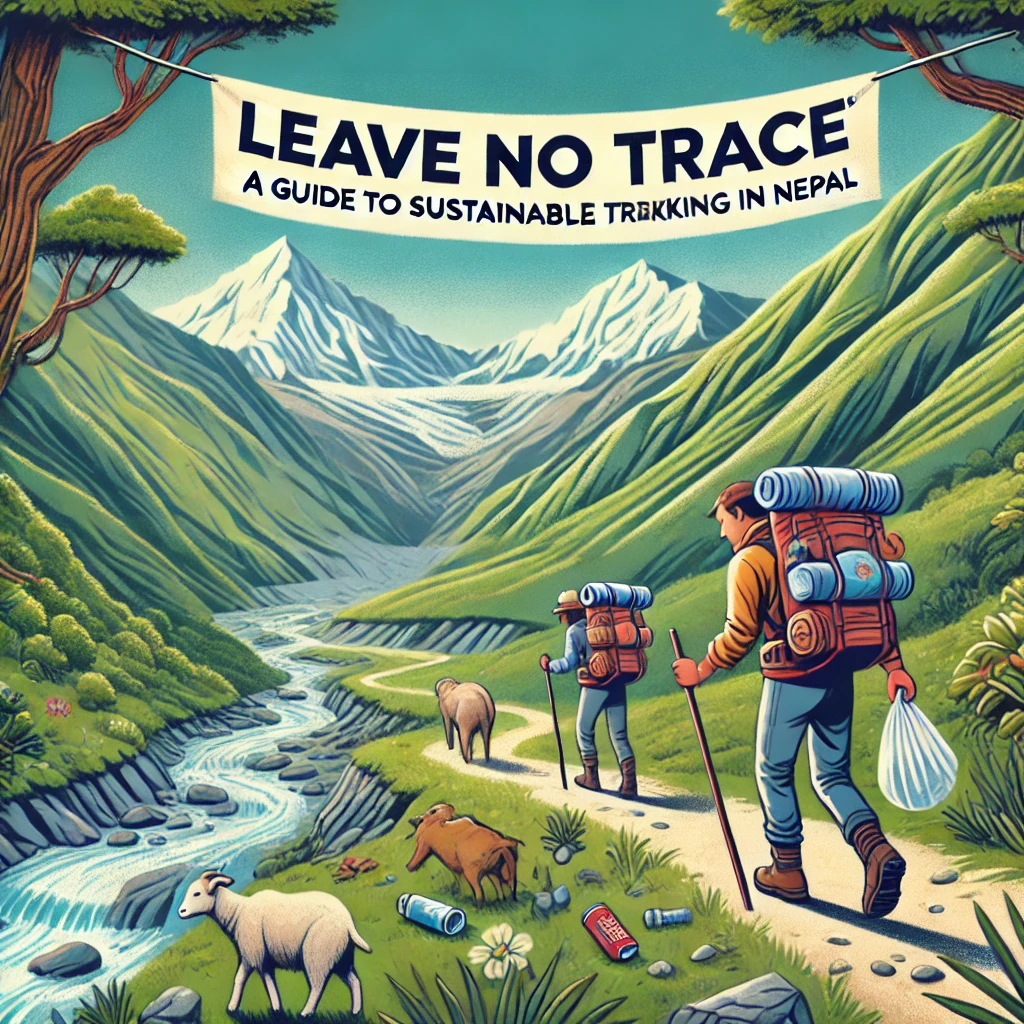The Annapurna region of Nepal is one of the most sought-after trekking destinations in the world, offering breathtaking views of the Himalayas, rich cultural experiences, and adventures that cater to trekkers of all skill levels. Among the region’s most popular trekking options are the Annapurna Circuit Trek (ACT) and the Annapurna Base Camp Trek (ABC). Both treks promise awe-inspiring scenery and unique experiences, but they differ significantly in terms of difficulty, duration, altitude, costs, and highlights. If you’re wondering which trek to choose, this comprehensive guide will help you decide by comparing the two in terms of difficulty, itineraries, fitness requirements, costs, altitudes, accommodations, and more.
Key Differences Between Annapurna Circuit Trek and Annapurna Base Camp Trek
1. Trekking Route
- Annapurna Circuit Trek: This trek follows a circular route that covers a wide variety of terrains and landscapes, ranging from lush subtropical forests to high-altitude alpine deserts. The trek takes you around the Annapurna massif, with the highlight being the crossing of the Thorong La Pass (5,416m). Along the way, you will encounter charming villages, cascading waterfalls, and sacred monasteries.
- Annapurna Base Camp Trek: In contrast, the ABC trek is a linear route that leads directly to the Annapurna Sanctuary, a natural amphitheater surrounded by towering peaks. This trek culminates at Annapurna Base Camp (4,130m), offering spectacular close-up views of Annapurna I, Machapuchare, and other Himalayan giants.
2. Duration
- Annapurna Circuit Trek: This trek typically takes 15-20 days, depending on your starting and ending points as well as optional side trips, such as a visit to Tilicho Lake (the highest lake in the world).
- Annapurna Base Camp Trek: The ABC trek is shorter, taking 7-12 days. This makes it ideal for trekkers who have limited time but still want to experience the beauty of the Annapurna region.
3. Altitude
- Annapurna Circuit Trek: Reaches a maximum altitude of 5,416m at Thorong La Pass, one of the highest trekking passes in the world.
- Annapurna Base Camp Trek: Peaks at 4,130m at the base camp, which is significantly lower but still offers stunning panoramic views.
4. Difficulty
- Annapurna Circuit Trek: This trek is more challenging due to its length, diverse terrains, and the high-altitude Thorong La Pass. It requires good acclimatization and a higher level of physical endurance.
- Annapurna Base Camp Trek: Considered easier and more straightforward, this trek is suitable for moderately fit individuals. However, it still involves steep ascents and descents, which can be physically demanding.
Fitness Requirements
- Annapurna Circuit Trek: This trek demands a high level of fitness due to its length, high altitude, and varying terrains. Prior trekking experience, as well as cardiovascular and strength training, are highly recommended to tackle the challenges effectively.
- Annapurna Base Camp Trek: Moderate fitness is sufficient for the ABC trek. While shorter, it still involves steep climbs and descents, so good stamina and some prior hiking experience are beneficial.
Costs
- Annapurna Circuit Trek: The cost ranges from $1,200 to $2,000, depending on factors such as the itinerary, guide and porter fees, permits, accommodations, and optional side trips.
- Annapurna Base Camp Trek: The ABC trek is more budget-friendly, with costs ranging from $800 to $1,500. This includes permits, accommodation, meals, and guide or porter fees.
Accommodation and Food
- Both Treks: Offer teahouses with basic facilities, including shared rooms and communal dining areas. Meals typically include Nepali staples like dal bhat, as well as international options such as pasta and pancakes. Accommodations tend to be more crowded during peak trekking seasons, so early reservations are advisable.
Which Trek Should You Choose?
- Choose Annapurna Circuit Trek if:
- You want a longer and more challenging trek.
- You’re interested in experiencing diverse landscapes, cultures, and terrains.
- You have prior trekking experience or are confident in your endurance.
- Choose Annapurna Base Camp Trek if:
- You have limited time but still want to experience the Himalayas.
- You prefer a moderate trek with stunning mountain views.
- You’re new to trekking or have a moderate fitness level.
Final Thoughts
Both the Annapurna Circuit Trek and Annapurna Base Camp Trek offer unique experiences that cater to different preferences and abilities. Whether you seek a long, challenging adventure or a shorter journey with equally rewarding views, the Annapurna region promises memories to last a lifetime. With proper planning, preparation, and an adventurous spirit, your trek in the Annapurna region will be an unforgettable experience that you’ll cherish forever. So pack your bags, lace up your boots, and get ready to embark on one of the most stunning trekking adventures in the world!
| Aspect | Annapurna Circuit Trek | Annapurna Base Camp Trek |
| Route | Circular, diverse terrains | Linear, to Annapurna Base Camp |
| Duration | 15-20 days | 7-12 days |
| Maximum Altitude | 5,416m (Thorong La Pass) | 4,130m (Annapurna Base Camp) |
| Difficulty | High | Moderate |
| Fitness Required | High | Moderate |
| Cost Range | $1,200 – $2,000 | $800 – $1,500 |
| Accommodation | Basic teahouses | Basic teahouses |
| Highlight | Thorong La Pass, Tilicho Lake | Annapurna Sanctuary |
| Scenery | Diverse: forests, deserts, peaks | Close-up mountain views |
| Cultural Experience | Tibetan, Buddhist, and Hindu mix | Gurung culture |
| Weather Variations | Extreme (hot to freezing) | Moderate to cold |
| Risk of Altitude Sickness | High | Moderate |
| Best Season | Spring and Autumn | Spring and Autumn |
| Accessibility | Longer travel to starting point | Easier access from Pokhara |
| Wildlife | Rare species (snow leopards, yaks) | Common wildlife (birds, deer) |
| Hot Springs | Available (Tatopani) | Available (Jhinu Danda) |
| Side Trips | Tilicho Lake, Ice Lake | Machapuchare Base Camp |
| Crowd Levels | Moderate | High during peak seasons |
| Flexibility in Itinerary | High | Moderate |
| Guide and Porter Needed | Recommended | Optional |
| Solo Trekking Allowed | Not officially | Permitted |
| Permit Requirements | ACAP, TIMS | ACAP, TIMS |
| Physical Strain | High | Moderate |
| Historical Sites | Muktinath Temple | None |
| Environmental Impact | Moderate | Low |
| Popularity | Moderate | High |



Leave a Reply